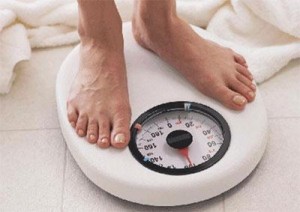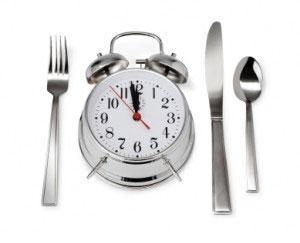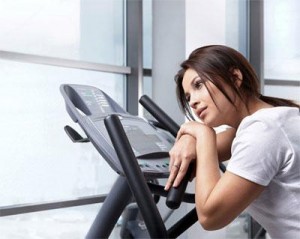 Once you reach a certain age, we are often told, the spread begins and there is nothing that you can do to stop it from happening.
Once you reach a certain age, we are often told, the spread begins and there is nothing that you can do to stop it from happening.
Many people will simply accept this as part of life, but what if you are determined to keep that weight off and maintain a healthy figure?
It is not something that is as impossible as we are sometimes lead to believe, and if you follow our tips then you will find that you can maintain a healthy weight and shape without having to resort to unhealthy methods.
1. Keep up a gentle exercise regime
Even though you may be a little older now than when you were at your peak in terms of fitness, there is no reason why you cannot stay in shape with some healthy and simple workouts which are adapted to your pace. Even if you did not exercise much in your 20s, it is never too late to start.
 There are plenty of great exercises which you can fit into your daily or weekly routine without having to change much at all. Just taking a walk a few times a week can really do wonders for your health as well as your waistline – getting all of that fresh air into your system and doing some gentle aerobic exercise will definitely make you feel happier and give you a better sense of wellbeing.
There are plenty of great exercises which you can fit into your daily or weekly routine without having to change much at all. Just taking a walk a few times a week can really do wonders for your health as well as your waistline – getting all of that fresh air into your system and doing some gentle aerobic exercise will definitely make you feel happier and give you a better sense of wellbeing.
If you have a dog, or grandchildren, then there are plenty of excuses to get walking – and even if you just take a walk down to the shops and back to pick up some milk instead of jumping in the car, it could make a real difference.
If you are feeling a bit more energetic, then going for a jog three or four times a week can help you to step up the pace and keep your weight in check much more easily. Dance classes are another great way to keep fit, and even learn a new skill at this stage of your life!
Make sure that you remember to stretch well before any form of exercise – not only will this reduce the risk of injury, but it will also help you to maintain flexibility in your joints. Taking up Yoga or Pilates could also help even further in this area.
You could even try strength training if you are looking to build up a little bit of extra muscle – as we get older our bones often become weaker, so giving yourself that extra boost can prevent you from starting to feel more frail and helpless. Start off with small hand weights, and you may find that you progress onto something bigger.
These small exercises can be done easily as part of a work day or as part of a daily routine for retirees, as most will not take long and can be done either on your own or in classes. Heading to a gym or class can also help you to meet new people and enjoy your time off all the more.
2. Keep a balanced diet
 One thing that you need to remember as you enter your 50s and 60s is that your body is starting to slow down, particularly when it comes to your metabolism.
One thing that you need to remember as you enter your 50s and 60s is that your body is starting to slow down, particularly when it comes to your metabolism.
Normally your daily routine will be slowing down a bit as well, and all of this adds up to mean that you are going to need fewer calories on a daily basis than you did when you were in your 30s.
One of the key reasons for weight gain as you age can be that you fail to adjust your diet, sticking with the same foods that you ate when younger and the same portion sizes. This mistake can be bad for your health, so try to reduce your calorie intake and stick to healthy foods most of the time.
The best advice includes some of the things that you already know, like eating five portions of fruit or vegetables a day, as well as drinking plenty of water and avoiding drinks which are sugary or fizzy. You should also try to limit your saturated fats, such as butter, and drink less alcohol to allow your body to recover more easily when you do have a drink.
Try not to add salt to your food and watch out for meals that are highly processed with salt, and be sure not to skip meals – particularly breakfast, which gives your metabolism a jump start in the morning.
If you want to try something new, then why not consider a strict diet such as going vegan – this will allow you to focus on clean and healthy foods rather than over-processed meals which contain large amounts of red meat and carbohydrates.
3. Know your body
 It is really important to keep an eye on your body as you get older, particularly as you reach your 50s and beyond. Many things will be changing, and so knowing what is going on will help you to stay in control a lot better as well as preventing you from feeling helpless or depressed as those changes happen.
It is really important to keep an eye on your body as you get older, particularly as you reach your 50s and beyond. Many things will be changing, and so knowing what is going on will help you to stay in control a lot better as well as preventing you from feeling helpless or depressed as those changes happen.
In terms of weight loss, one thing that you can take a look at is your body mass index, or BMI. There are a number of ways to check up on this including online calculators, and they will help you to figure out whether you are at a healthy weight or not. If your BMI is under 25 then you are doing well as you are not considered to be overweight, so you can take a more measured approach to weight loss rather than rushing to get rid of as much weight as possible.
Keep an eye on your BMI and slow down your weight loss when you start to approach a score of around 19 or 20; once you dip below 18.5 you are considered underweight, and this will put unnecessary strain on your body.
The results of allowing yourself to become underweight could include bone loss, anaemia, a poor immune system, and even cardiac issues, which are certainly unwanted as you get older.
Understanding your body a little better can also help you to lose weight more effectively, too. When we are younger the weight can go anyway, such as arms, hips, and thighs – but as we grow older we often find that the stomach area is where it all begins to sit. This means that exercise has to be focused in a different way in order to be truly effective.
4. Focus on your food
 One of the key mistakes that a lot of people make when they are dieting – or even just when following a normal routine – is to take part in other activities when eating, therefore not really focusing on their food.
One of the key mistakes that a lot of people make when they are dieting – or even just when following a normal routine – is to take part in other activities when eating, therefore not really focusing on their food.
This can include watching television or movies, engaging in conversation, reading a book, and numerous other distractions.
The problem is that you sometimes end up tricking your brain a little into thinking that you have eaten less than you have. If you eat quickly or move on to dessert right after your first course, then your system may not have time to send the signals to your brain that you have eaten enough and can stop now, meaning that you still feel hungry and end up eating far more than you should.
This can really pile the pounds on, and can be especially devastating when you are on a diet. If you eat your super healthy salad without even noticing it passing through your lips, then you will of course feel hungry afterwards – and that will lead to bad habits such as snacking or getting second portions!
Not only is it more healthy to focus on your food, but it can be more rewarding as well. If you are changing your diet to include healthier options, then you will experience new flavours and new textures while you eat which you may not have been exposed to for a long time. Take the time to really appreciate these flavours, and you may find that you enjoy salad or other low calorie options more than you thought.
5. Keep a schedule
 One of the other factors that makes you pile on weight unexpectedly? Eating at irregular times on a daily basis. This is something that not everyone realises, and even when we are fully aware of it we do not always manage to avoid it all the same.
One of the other factors that makes you pile on weight unexpectedly? Eating at irregular times on a daily basis. This is something that not everyone realises, and even when we are fully aware of it we do not always manage to avoid it all the same.
First of all, you should always try to eat breakfast within half an hour of waking up: this allows your metabolism to get a good start for the day, prevents strong hunger pangs later on during the day, and also prevents your body from going into starvation mode – where it will retain more fat than normal just in case you are not able to eat for a while.
You should also be aware that your body is good at fitting into routines, which means that if you normally eat at the same time every day, you will be able to digest more easily because your system will already be preparing itself.
If you eat at a different time every day, then your body will not be prepared, particularly if you just decide to stop at a random time and eat rather than planning it out in your head.
When we are ready to eat plenty of processes begin, such as salivation, which aid in digestion and help our metabolisms to cope better with what we are ingesting.
6. But don’t get stuck in a rut
 When it comes to exercise, however, you are sure to find that sticking to the exact same routine week in and week out will gradually become much less effective over time.
When it comes to exercise, however, you are sure to find that sticking to the exact same routine week in and week out will gradually become much less effective over time.
Mix things up on a regular basis to be sure that you are still keeping an effective exercise regime.
There are plenty of different options to go for, and you do not have to think of something new every time – try rotating your exercise on a weekly basis, so that once every month you take part in the same activity, or simply increasing the intensity of your exercise slightly for every month that goes by.
This will help you to maintain your fitness levels and even increase your abilities when it comes to working out.
If you start to see that you are no longer losing weight despite the fact that you are keeping to a healthy routine and diet plan, then try changing up what you are eating as well.
Stick to the healthy stuff, but give yourself a chance to go for something different which might help you to get out of that plateau! In some cases you may even want to take a couple of “days off” from dieting, and return to the healthy regime to see better results after that point.
7. Take a helping hand
 If you need some help to keep your energy up, or stop feeling hungry after meals, then a supplement could be the way for you to go.
If you need some help to keep your energy up, or stop feeling hungry after meals, then a supplement could be the way for you to go.
There are lots of diet pills and exercise boosters out there, so of course you will need to take a look into this very seriously to know that you are getting the right thing which will actually work for you.
There are plenty of resources available online from people who have really looked into the industry and know what they are talking about, so you should use these in order to get the best results possible.
There are diet pills which will suppress your appetite, helping you to stick to a particular diet rather than snacking and going over your planned calorie limit. Other pills might boost your metabolism, helping you to return to the levels you may have enjoyed previously in life.
Yet others can help you to gain more energy and feel more awake, helping you to focus on exercise more and get more done before you feel tired.
There is certainly no shame in accepting a helping hand which will give you just enough of a boost to meet your weight loss goals.
Conclusion
If you are over your fifties or approaching that age and want to stay fit, there are plenty of ways for you to lose weight or keep it off.
The best tactic is to go for all of these methods in moderation: make sure to put together a healthy diet and exercise regime which can be easily adjusted on a regular basis, and perhaps consider adding diet pills to your routine in order to ensure that everything goes as smoothly as possible.
It is important to look after your health, and to always know that you are taking the most effective action to get your body to the place where you want it to be.




